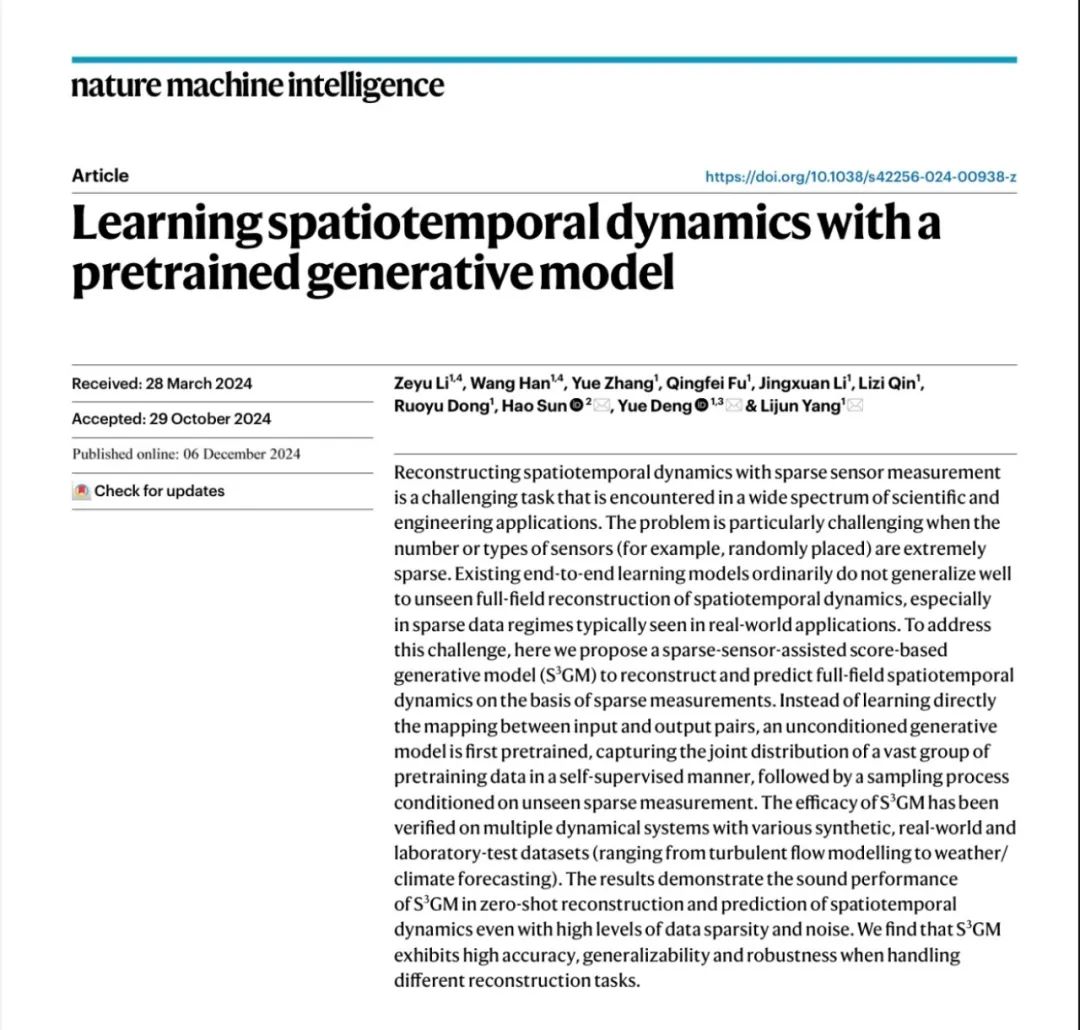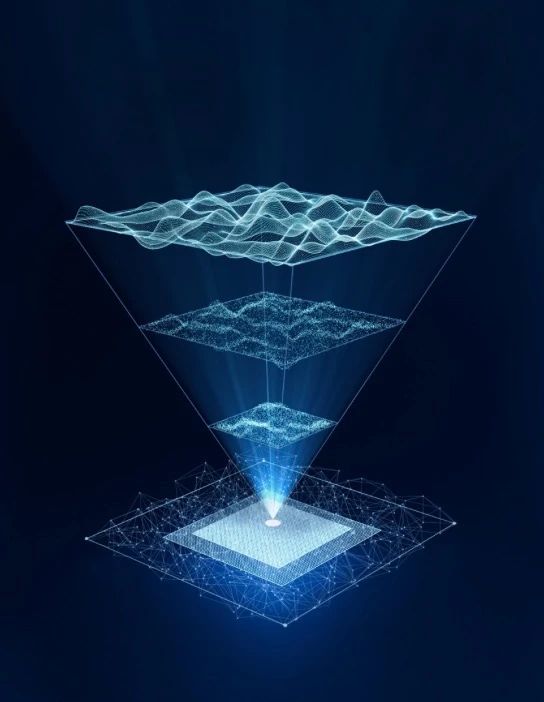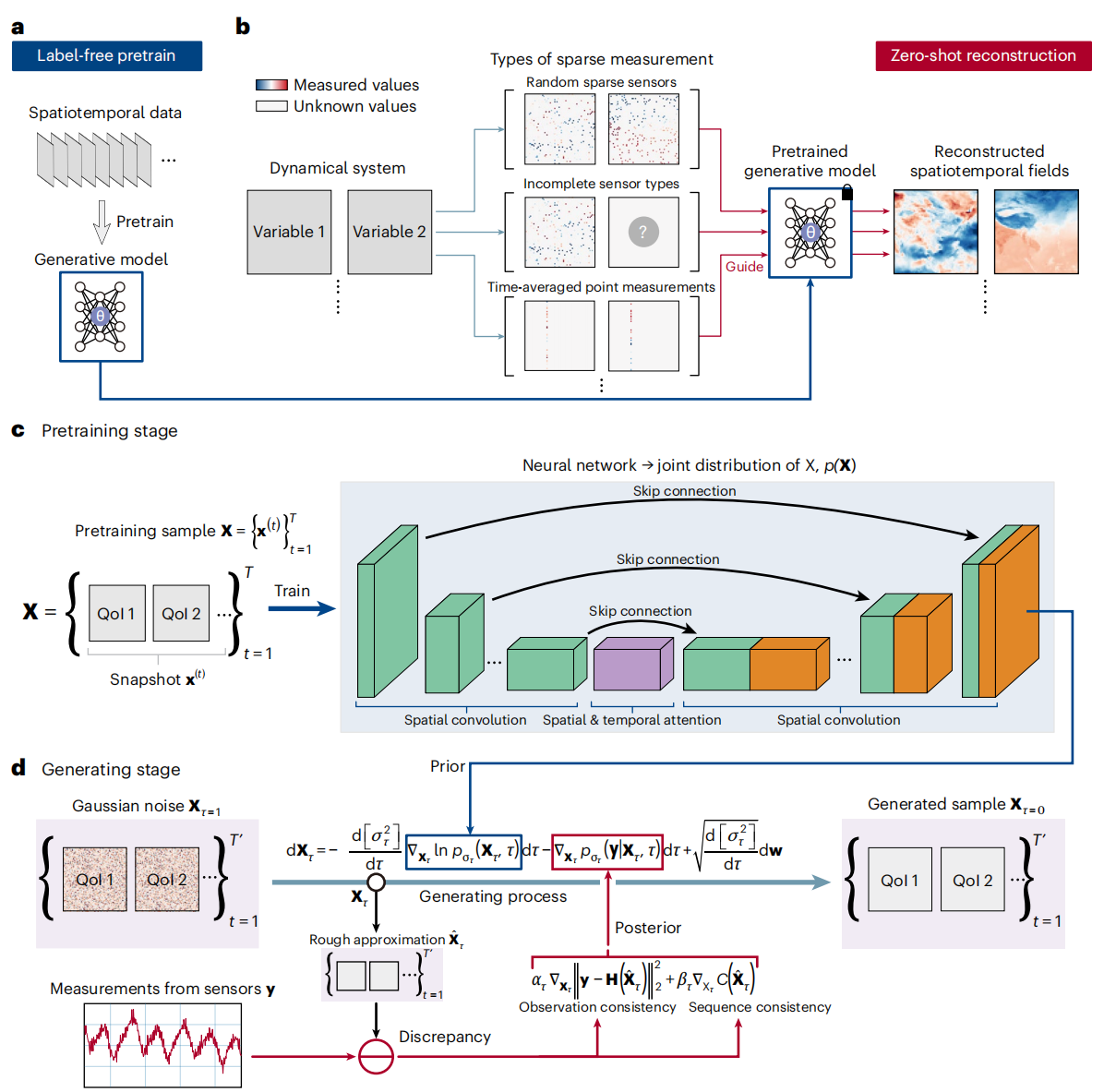The team of Associate Professor Sun Hao
from the Gaoling School of Artificial Intelligence at Renmin University of
China, in collaboration with Professor Yang Lijun's team from Beihang
University, published an article titled "Learning spatiotemporal dynamics
with a pretrained generative model" in the Nature sub-journal Nature
Machine Intelligence. The research proposed a sparse-sensor-assisted
score-based generative model (S3GM) to reconstruct and predict full-field
spatiotemporal dynamics on the basis of sparse measurements. The results
demonstrate the sound performance of S3GM in zero-shot reconstruction and
prediction of spatiotemporal dynamics even with high levels of data sparsity
and noise. It is found that S3GM exhibits high accuracy, generalizability and
robustness when handling different reconstruction tasks. The co-first authors
of the article are Li Zeyu (Beihang) and Han Wang (Beihang), and the
co-corresponding authors are Sun Hao (RUC), Deng Yue (Beihang), and Yang Lijun
(Beihang).
This is the second paper published by the
faculty and student team from the Gaoling School of Artificial Intelligence in Nature
Machine Intelligence. Previously, Sun Hao's team had published a paper
titled "Encoding physics to learn reaction-diffusion process"
in Nature Machine Intelligence (2023, 5: 765-779). The journal Nature
Machine Intelligence publishes high-quality original research and reviews
on a wide range of topics related to machine learning, robotics, and artificial
intelligence, exploring and discussing the significant impacts of these fields
on other scientific disciplines as well as on society and industry.

Reconstructing spatiotemporal dynamics with
sparse sensor measurement is a challenging task that is encountered in a wide
spectrum of scientific and engineering applications. The problem is
particularly challenging when the number or types of sensors (for example,
randomly placed) are extremely sparse. Existing end-to-end learning models
ordinarily do not generalize well to unseen full-field reconstruction of
spatiotemporal dynamics, especially in sparse data regimes typically seen in
real-world applications.

To address this challenge, here we propose
a sparse-sensor-assisted score-based generative model (S3GM) to reconstruct and
predict full-field spatiotemporal dynamics on the basis of sparse measurements.

For more details about the research:
https://www.nature.com/articles/s42256-024-00938-z



